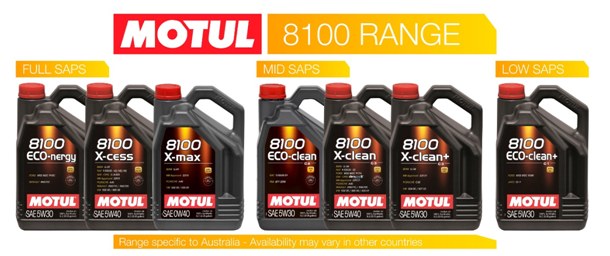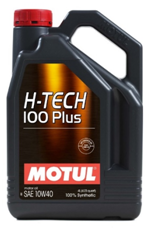

|
| motorculture |
|
|||
Age: 53 Posts: 462 Joined: 24th Apr 2009 Ride: Mazda( kinda FORD..!) Location: Sydney, Australia |
  MOTUL 300V Range – 100% synthetic ESTER Core Motul has built its reputation on the motorsports range of oil called 300V. Suitably named after exceeding 300 victories achieved with this formulation incorporating Motul’s proprietary Ester technology. Each viscosity is referenced against different engines in different racing categories. Porsche, Nismo and Mugen are but a few. The 300V range is accompanied by competition gear oils, brake fluids and cooling fluids to ensure the highest level of protection and endurance in the most extreme conditions. The 300V range can be used from the highest level of motorsport down to the everyday level of performance cars. 300V can be used in either spark ignition or compression ignition vehicles which is to say: - Petrol (Leaded, Race Leaded, ULP, and PULP, Race Unleaded) - Diesel (Standard, Ultra Low Sulphur, Bio-) - Ethanol (E85, E100), Methanol and Alcohol *Warning – Drain intervals for race fuels, including Ethanol, Methanol and Alcohol fuel types are subject to fuel dilution and water absorption. Neglecting to drain at suitable intervals will cause irreparable engine damage. To find out more about the Motul 300V range, visit the Motul website {DESCRIPTION}. IMPORTANT –There is an exciting new product range release for 2015 that all users of E85 need to know about. Read on to find out more!  MOTUL 8100 Range – 100% Synthetic The 8100 range has a comprehensive list of OEM approval oils to suit the modern European vehicles meeting strict Euro 4, Euro 5 and Euro 6 emissions standards. The range is broken up by 6 categories, 3 categories are for fuel economy, with the remaining 3 categories covering engine protection. What defines these categories relates to SAPS and HTHS.  What is SAPS and HTHS? SAPS stands for Sulphated Ash, Phosphorus, Sulphur. All of which are naturally occurring elements in fluids refined from crude oil such as engine oil and diesel fuel. There is currently a focus to remove these elements from oil and diesel fuel to reduce hazardous emissions and improve fuel economy. When SAPS enter the combustion cycle on diesel engines, the particles leaving the exhaust will block up DPF’s (Diesel Particulate Filters – think of it as an air filter on your exhaust) and CRT (Continuously Regenerating Technology – similar to DPF but it works continuously). The reason for these filters on your exhaust is to capture the black soot and burn it off. The down side is that SAPS are also antiwear additives, corrosion inhibitors and detergents. New additives are being developed every year to replace SAPS and provide an environmentally friendly lubricant and fuel. HTHS is a standard test method for measuring viscosity of new and used engine oils at High Temperature and High Shear by a Tapered Bearing Simulator Viscometer at 150°C. Oils with low HTHS provide improved fuel economy but sacrifice engine protection. Low HTHS = 2.9-3.5 Oils with a high HTHS provide engine protection over fuel economy. High HTHS = 3.5 and Above To find out what the HTHS is for any of the 300V and 8100 range, go to the Technical Data Sheet (TDS) and look at the physical properties. For ease of recognition Motul has prefixed all of the ‘Fuel Economy’ oils with ‘Eco’. The range includes:  {DESCRIPTION} (Full SAPS – Low HTHS)  {DESCRIPTION} (Mid SAPS – Low HTHS – C2) *DPF  {DESCRIPTION} (Low SAPS – Low HTHS – C1) *DPF  {DESCRIPTION} (Full SAPS – High HTHS)  {DESCRIPTION} (Full SAPS – High HTHS)  {DESCRIPTION} (Mid SAPS – High HTHS – C3) *DPF  {DESCRIPTION} (Mid SAPS – High HTHS – C3) *DPF & Extended Drain Interval You may notice that there is no C4 (Low SAPS – High HTHS) oil listed and we’ll get to that shortly. MOTUL Specific Range – 100% Synthetic Next to Motul’s 8100 range which has a comprehensive list of approvals per product, Motul also has a specific range which caters for precise OEM specifications and like the 8100 range they carry a letter of approval from the OEM.  SPECIFIC 948 B 5W-20 (Ford Based Engines) This is a fuel economy oil with a very low HTHS and is to suit late model Ford (Falcon V8), Jaguar, Land Rover, Chrysler, Jeep.  {DESCRIPTION} (Ford Based Engines) Although this is a fuel economy oil it is Full SAPS, low HTHS oil providing moderate protection. Again this suits the late model Ford, Jaguar, Land Rover vehicle with small engines (1.3-2.5L)  {DESCRIPTION}(VW Auto Group/ VAG) This is an extended drain interval for VAG based engines with or without DPF. The 504/507 specification is backward compatible with 502/505 and all previous specifications. 502/505 is for short drain intervals. This approval is also found in Motul’s 8100 X-clean+ 5W30.  {DESCRIPTION} (Renault Based Engines) Here is the C4 oil we previously mentioned. This is a low SAPS but high HTHS oil. In Australia, the only vehicles requiring this is the Renault/ Nissan/ Infiniti vehicle fitted with the V9X engine. MOTUL H-Tech 100 Plus Range – 100% Synthetic The new H-Tech 100 Plus range is a premium everyday oil range suited to late model ADM, JDM and KDM vehicles. H- meaning Hydroprocessed or G3+ base oil.  {DESCRIPTION} - API SN/GF-5 (Fuel Economy Oil)  {DESCRIPTION} - API SN/GF-5 (Fuel Economy Oil)  {DESCRIPTION} - API SN  {DESCRIPTION}- API SN  {DESCRIPTION} In addition to the API SN standard H-Tech Prime carries approvals from Mercedes Benz and VAG for short drain intervals. The ACEA standard of A3/B4 certifies this oil as providing superior engine protection in extreme conditions. Multipower Range – Technosynthese Here is the semi-synthetic (Technosynthese = Semi-Synthetic) range suited to older vehicles or vehicles with high mileage requiring API SM or previous API standards SL, SJ, SH. For pre-1980’s engines in vehicles of value which require era-specific oils, use the Motul Classic range which is outlined further on.  {DESCRIPTION}  {DESCRIPTION}  Multipower Plus 20W50 All Multipower products carry API SM or SL standards. MOTUL Historic Range – Era Specific Chemistry The Historic range is easily recognisable by the classic Motul logo in a black metal tin.  {DESCRIPTION} An updated version of the 1966 Motul 2100, the first semi synthetic oil in the automotive market. This is suited to naturally aspirated or turbocharged engines built after 1970. Also suited to vintage cars and motorcycles.  {DESCRIPTION} Specifically designed for engines built between 1950 and 1970. It is a multi-grade mineral lubricant with moderate detergent and is compatible with elastomer gaskets.   {DESCRIPTION} These lubricants are suited for engine and gearboxes built between 1900 and 1950. They are a mono-grade mineral oil with a very low detergent level for complete compatibility with paper/ felt/ fabric gaskets. SAE30 and SAE50 are very high in zinc and have no friction modifiers making them perfect for the running-in of new engines. Now for the big announcement - New product release for 2015 There is a growing popularity in the use of E85 fuels and even more so now that many states in Australia have it available at the bowser. Significant advantages can be had using E85 fuels which primarily comes down to horsepower. The side effects of using E85 fuels varies depending on what it’s derived from (Corn, Sugar or Wheat) and the degree of hygroscopicity (hygro- ‘moisture’, scopic ‘seek out or look for’). Simply put E85 sucks water out of the air and will cause rust, corrosion and sludge in your fuel system and engine internals if neglected. One other consequence is that service intervals are reduced dramatically. If you are having to change your oil 3 or 4 times more frequently, Motul can understand why a more cost effective alternative is what you need. Motul Sport 100% Synthetic Ester range – NEW FOR 2015!   The release will be accompanied with important technical information on E85 and tools to assist in the choice of oil viscosity. Stay connected with {DESCRIPTION} to get news on the viscosity and technical data as it’s released. If you want to be one of the first to start using Motul Sport, ask for it at any reputable oil reseller or your local performance workshop. Looking for the right oil for your car? Easy! Go to {DESCRIPTION} Find your nearest Motul reseller: {DESCRIPTION} We’re here to help! Can’t find an authorised reseller near you? Let the Motul team know. Send us a PM! If you have any questions about any of our products please feel free to get in contact with us. For more information visit the official Motul Website {DESCRIPTION} or subscribe to the Motul YouTube Channel {DESCRIPTION}
_________________ Automotive social media {DESCRIPTION} or call us on 02 9418 9008 |
|||
| Top | |
|||
| Who is online |
|---|
Users browsing this forum: No registered users and 9 guests |